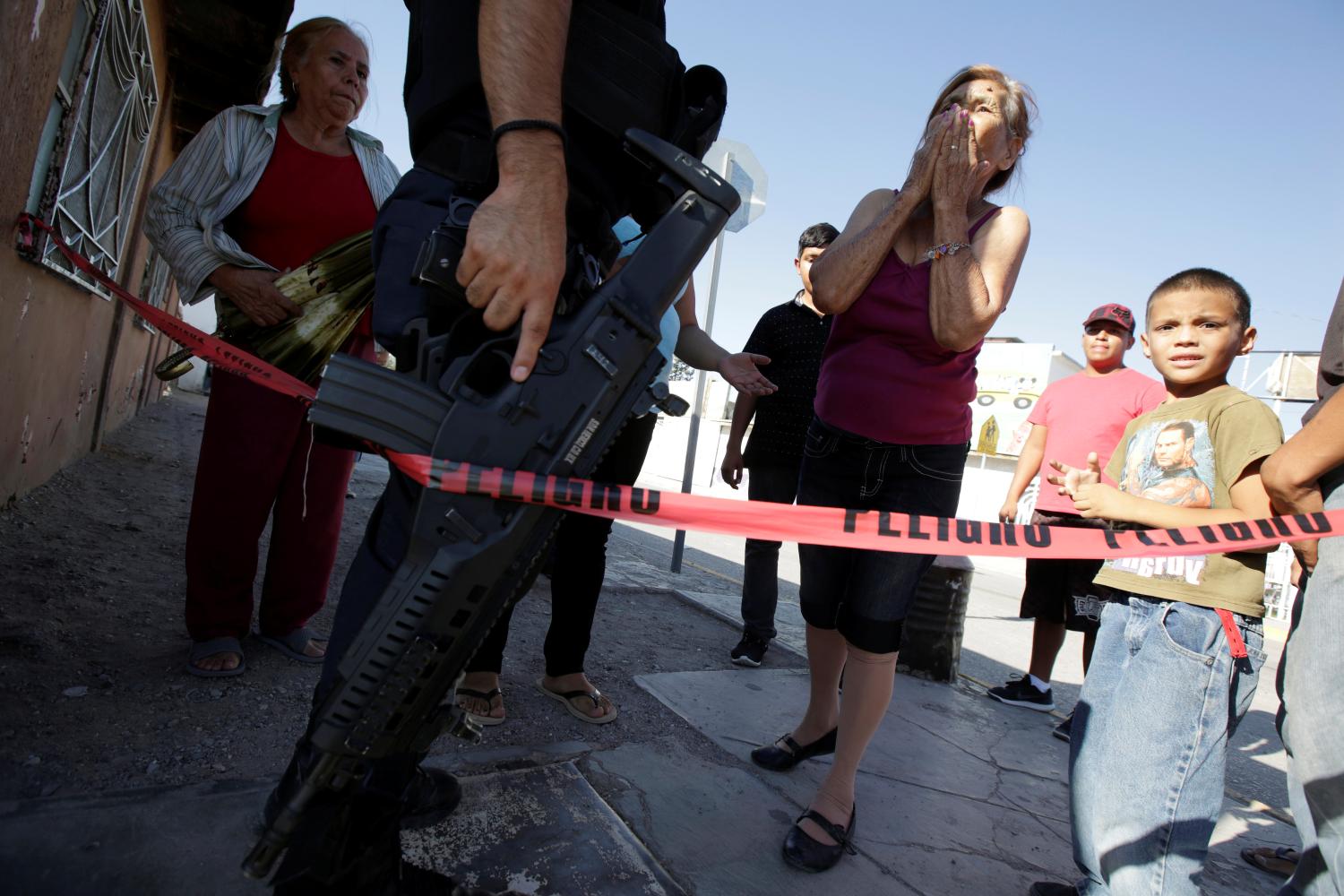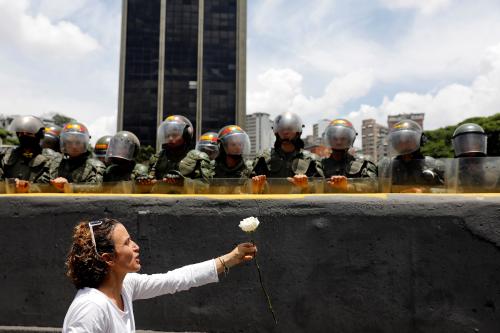This working paper is part of a series of papers on democracy, security, and violent extremism prepared for the Community of Democracies’ Democracy and Security Dialogue. The project seeks to foster greater collaboration among democratic governments, donors, civil society, and academics to improve security outcomes and create a more conducive environment for the strengthening of democracy around the world.
SUMMARY
In preparation for the Community of Democracies’ Democracy and Security Dialogue, Brookings Institution researchers analyzed the relationship between democracy and violent crime from 2000-2014. Without controlling for other variables, they found that countries with low homicide rates tend to be strong autocracies and strong democracies, whereas democratically weaker regimes were more likely to have higher levels of homicide.
This paper is organized as follows. First, the researchers outline the extant literature on democracy and crime before detailing how they conceptualized and measured these two variables. Second, they analyze the relationship between these two variables, before concluding with a discussion of their results.
The Brookings Institution is committed to quality, independence, and impact.
We are supported by a diverse array of funders. In line with our values and policies, each Brookings publication represents the sole views of its author(s).




